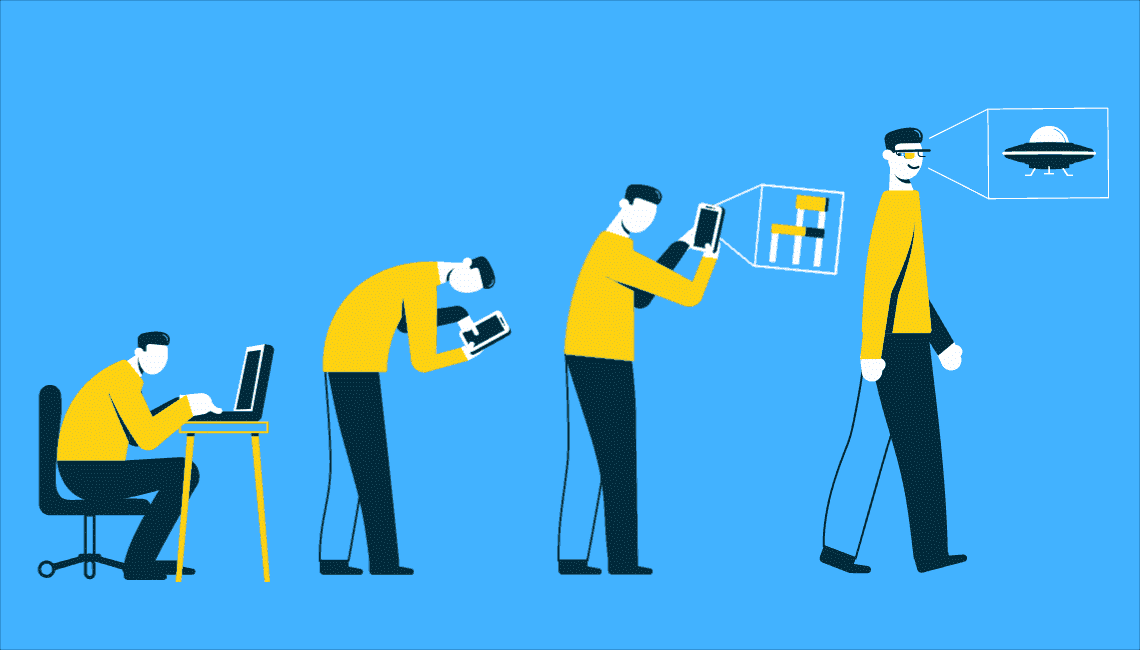Banner illustration: Fausto Montanari
AR wearable framework design
Re-imagine the foundation of AR utility within a collaborative ecosystem.
Artefact and a leading company partnered together to test drive their upcoming AR platform and its app-model framework. Specifically, to re-imagine how the basic utility features would function in the AR wearable context to bring the most joyful and fluent experience.
I functioned as an interaction designer through the whole project and actively participated in concept ideation, visualization, design evaluation and iteration process.
Role / Main Contributions
+ Competitive analysis
+ Concept ideation
+ AR framework designs
+ Storyboarding
+ Wireframing
+ High-fiediely designs
+ Presentation
Deliverables
+ Figma compositions
+ Design documentation
using Google Site
+ Motion studies
+ Unity prototype
Timeline
Summer 2020
12 weeks
Yes, it is way better than what’s on
your smartphone.
AR (augmented reality) has started to be implemented into our devices. As most of the explorations and products in the market tend to exist independently with the focus on its entertainment aspect, there is a lack of consideration in how the AR platform should be constructed from the ground up. In this project, we focused on re-imagine the foundation of utility apps and its potential in integrating with a variety of contexts to result an unexpectedly born-to-be-this-joyful experience.
In the short term
Build an easy-to-use app model that is beyond the smartphone’s capability and is modularized for future app development.
Think outside of the screens, design for the future, and make it actionable.
In The Long term
Transform current users to this new product and retain them within the brand ecosystem.
Utilize the advantages of the client’s current products and make the experience immersive and recognizable.
What we delivered
3 levels of product fidelities.
Due to the complexity and ambiguity of the medium, we adopted 3 tactical filters to bring focus and increased fidelity to the design. We categorized and delivered a framework accomplished with rich storylines, augmentation states, motion studies, and a Unity prototype. It is aiming to provide a guidance in constructing their future feature roadmap.
Essential
Core features and "Jobs to be done".
Aim for completeness.
Delightful
Doing the job better.
Make the complicated simple.
Immersive
Realizing potential of the medium.
Create concrete asks for partner teams
How we did it
It is an unique design process that we started with finding opportunities, evaluating their worthiness, communicating client interests, to delivering a thought-provoking futures, a foundation for a brand new augmentation development.
Key learnings
02
Standardize interaction model early on.
It is even better to wireframe it out and documented across team.
Just like any other matured platforms, there should always be a traceable routine to keep app behaviors consistent. Finding the pattern and aligning on an interaction model early on will save a lot of time when ideating for more complex functions.
Sometimes, standardization comes with compromises, and we may need to temporally give up some awesome ideas. We would keep these ideas in a shared parking lot and come back for them when it is a good time.
01
Don’t just say it, visualize it!
Quick sketching and storyboading out scenarios is the ultimate cheap yet efficient way to establish logic, align visions, and evaluate worthiness.
Nothing beats the importance of visualizing your thoughts when communicating them to others, especially when designing for the AR & VR platform. Several time in this project, I found myself trapped within the screen-design mindset, which I was either still creating assets for a no-longer-existing screen or thinking too outside of the box and allowing ‘magic' to fill in the gaps.
After several adjustments, I decided to sketch out the interaction storylines and put together a mini stage play for evaluating concepts. Using these low-fi prototypes, we got to clear many muddy puddles and establish rules around them.



